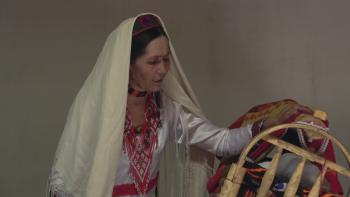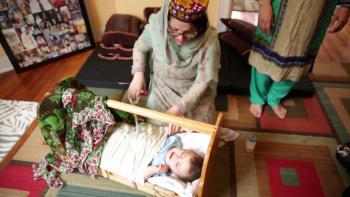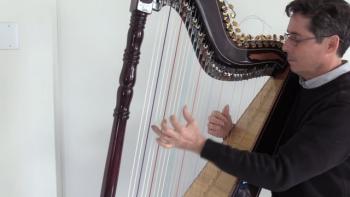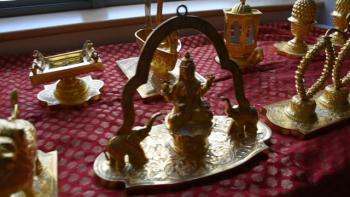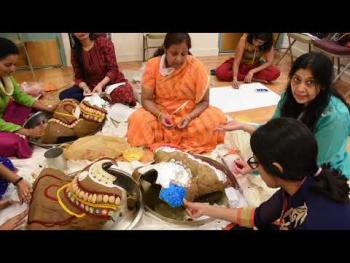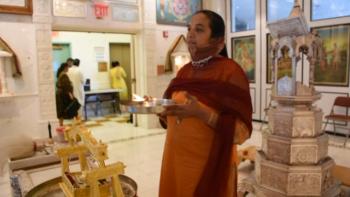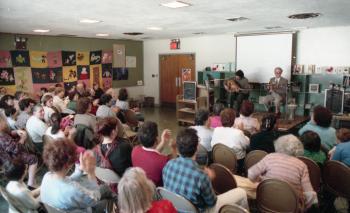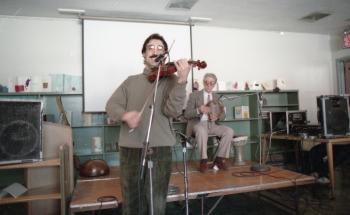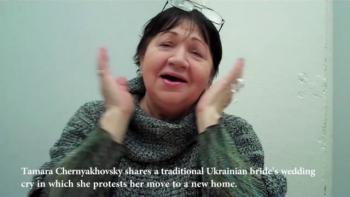Music
Asalbegim Mamadalibekova sings a traditional Wakhi lullaby (or lalajik). In the second video, she discusses the lullaby's wider significance in the community
Verbal Arts
Music
At home in Brooklyn, thousands of miles from the Hunza Valley of northern Pakistan, Amina Bibi passes on the Wakhi language to her 1-year-old son Alhan - through lullabies. In Wakhi with Wakhi and English subtitles by Husniya Khujamyorova. Part of the Lullabies of New York Project, supported by the Brooklyn Arts Council.
In the second video, Jamila Bibi, a Wakhi speaker from the Gojal Valley in the Hunza District of northern Pakistan, tells the story of her family and her language. In Wakhi with Wakhi and English subtitles by Husniya Khujamyorova.
Verbal Arts
Music
Mirgulova Shirmo, a Rushani speaker originally from Vamar in the Rushan region of Tajikistan, sings a Rushani lullaby. In th second video, she discusses the lullaby and its wider context in her life. Part of the Lullabies of New York Project, supported by the Brooklyn Arts Council. In Rushani with Rushani and English subtitles by Husniya Khujamyorova.
Verbal Arts
Music
Nicolas Carter performs "Pájaro Campana" and discusses the history of the Paraguayan harp and playing technique.
Music
This notion that “all Jains are Gujaratis” is overshadowing the true representation of who Jains are and the religion Jainism. As part of Brooklyn Arts Council's Citizen Folklife initiative, Smrita Jain does fieldwork in order clear up this misconception.
Ritual
Place
Health
Material Culture
Migration
Music
Belief
The Non-Gujarati Jains is fieldwork project by videographer and Conceptual artist, Smrita Jain. Project for Citizen Folklife Program, Brooklyn Arts Council.
Ritual
Place
Health
Material Culture
Migration
Music
Belief
Aarti also spelled arti, arati, arathi, aarthi (In Devanagari: आरती ārtī) is a Hindu religious ritual of worship, a part of puja, in which light from wicks soaked in ghee (purified butter) or camphor is offered to one or more deities. Aartis also refer to the songs sung in praise of the deity, when lamps are being offered.
Ritual
Place
Health
Material Culture
Migration
Music
Belief
Simon Shaheen discusses the Oud and performs the Rahbani Brothers song "La Enta Habibi" with Hanna Mirhige on darbuka and tambourine.
Music
Simon Shaheen and Hanna Mirhige perform Near Eastern Traditional Music at the Bay Ridge Public Library as part of the 1989 Brooklyn Folk Arts and Artists Series.
Music
Tamara Chernyakhovsky shares a traditional Ukrainian wedding cry sung by a bride before her marriage in which she protests her move from home.

